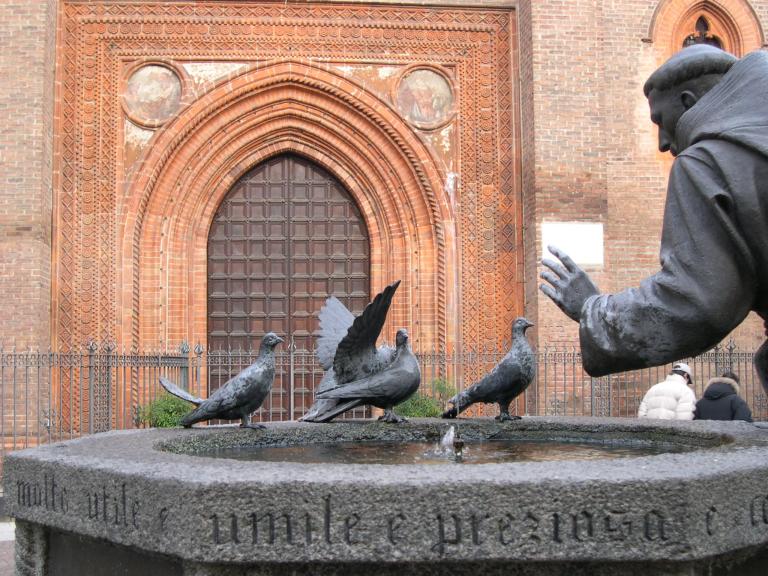
“Let the earth bring forth all kinds of living creatures: cattle, creeping things, and wild animals of all kinds. And so it happened: God made all kinds of wild animals, all kinds of cattle, and all kinds of creeping things of the earth. God saw how good it was.” (Genesis 1:20-25)
It is the intention of this two-part thesis to argue that at least some species of non-human animals possess immaterial, and therefore, immortal souls. This position is certainly not a popular one, and it is generally not one accepted within Catholic theology. I ask, therefore, for the reader’s indulgence as I make my argument.
I will begin by defining what a soul is, whether there are different kinds of souls and whether some or all souls are immortal. I will then proceed to show that the attributes attributed to immortal or spiritual souls exist in non-human animals.
A note about language. I will use the term “non-human animals” to refer to species that are not human. Strictly speaking, human beings belong to the genus animals.
Body and Soul
The Catechism of the Catholic Church provides the most precise definition of the soul. “The spiritual principle of human beings. The soul is the subject of human consciousness and freedom; soul and body together form one unique human nature. Each human soul is individual and immortal, immediately created by God. The soul does not die with the body, from which it is separated by death, and with which it will be reunited in the final resurrection”.
Whereas the body is composed of matter subject to decomposition (essentially, the organs and tissue break down into simpler organic forms), the soul is an immaterial substance, and therefore, not subject to decomposition.
Types Of Souls
Traditionally, souls are categorized as either vegetative, sensitive, or rational (Thomas Aquinas, The Summa Theologica, Part I QQ LXXV.CII. Vol. 4).
The vegetative soul is possessed by plants only. The powers ascribed to the vegetative soul are reproduction, nutrition, and growth. Since these powers are reducible to the plant’s body or material function, the plant’s soul is not immortal.
The sensitive soul possesses the powers of the vegetative soul and adds the capacity to receive and to react to sense impressions. However, it does not have a capacity for rational thought. This is the type of soul possessed by non-human animals. The view philosophically is that while the sensitive soul is an immaterial substance, it is dependent upon the body for its existence and is, therefore, not immortal. It is this conclusion that I wish to contest and a subject we shall return to shortly.
Lastly, the rational soul possesses all the powers of the sensible soul and adds to it the power of rational thought. While the term “rational thought” can incorporate several qualities, any definition should include the capacity for free will, logic, speech, and levels of cognition. These traits are manifested in the physical body through the brain, which itself is acted on by the mind.
Consciousness
The mind is the soul being made manifest in the body. There are several reasons to suggest this conclusion, perhaps none more compelling than the mystery of consciousness. The word itself is difficult to define and can be understood differently under different circumstances. Still, the term often includes self-awareness, thought, volition, and sensation.
The consciousness as a product of the mind is not bound by material concerns. This is evident because conscious states such as intentionality and thought are neither divisible nor composed of matter.
Accepting that the attributes attributed to sentience (i.e., free will, intentionality, and cognition) are not reducible to the various parts of the physical body, we may infer that these attributes are qualities of a spiritual soul.
I now conclude part one of this exposition. I have defined the soul as an immaterial substance and the body as a material substance subject to decomposition. I have also surveyed the types of souls and the attributes associated with each type of soul.
In part two of this exposition, I will address whether non-human animals possess attributes of a rational (and, therefore, immortal) soul.












